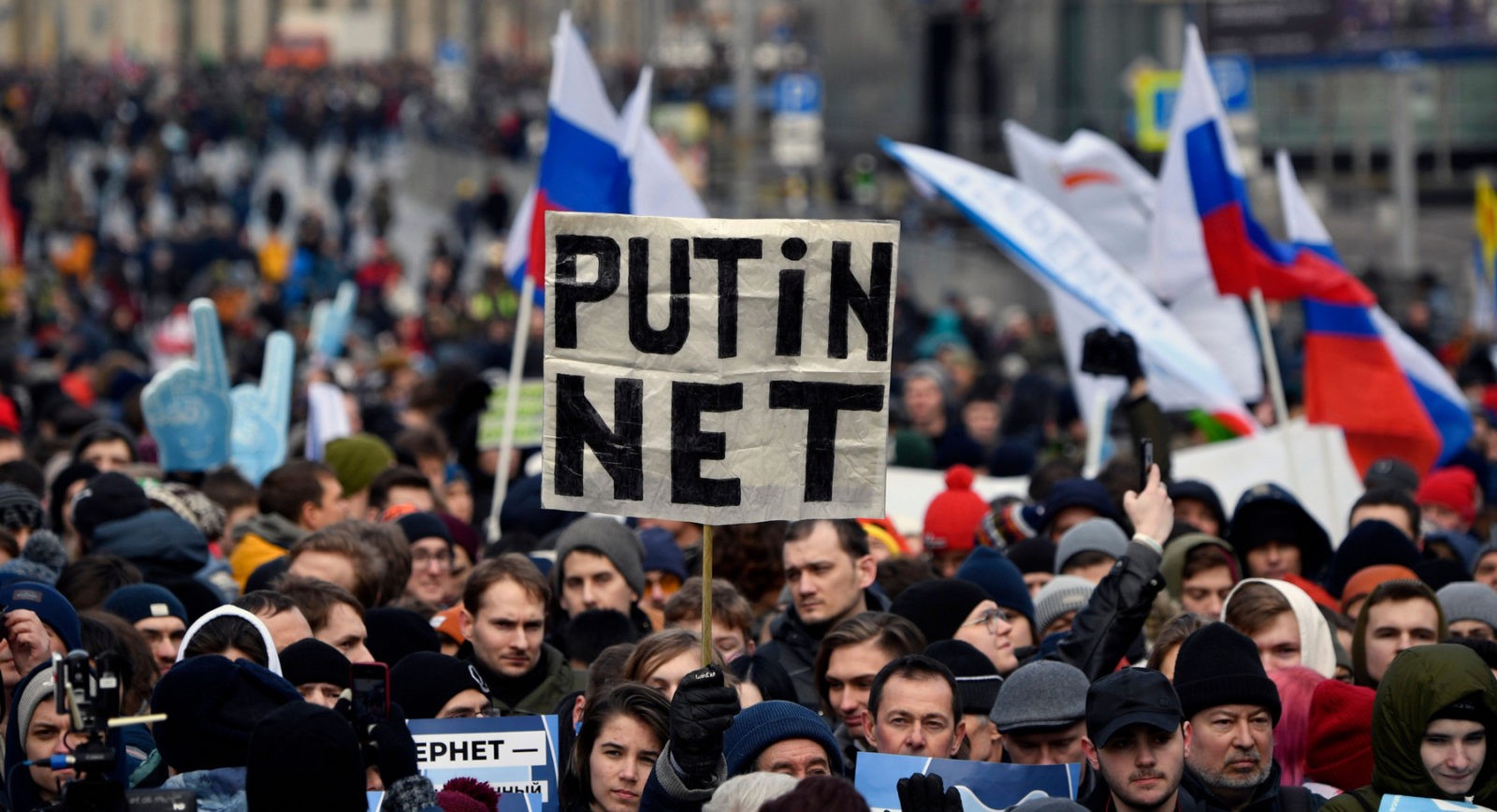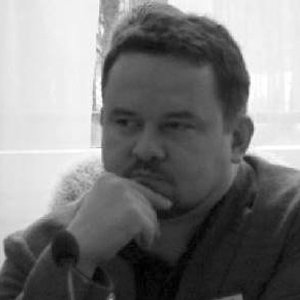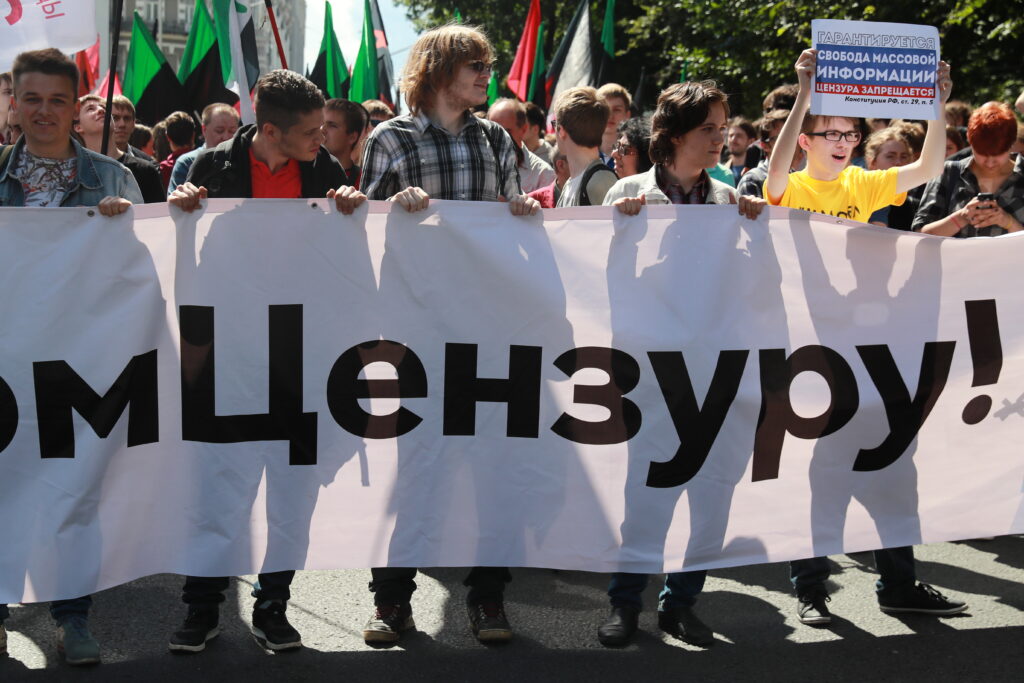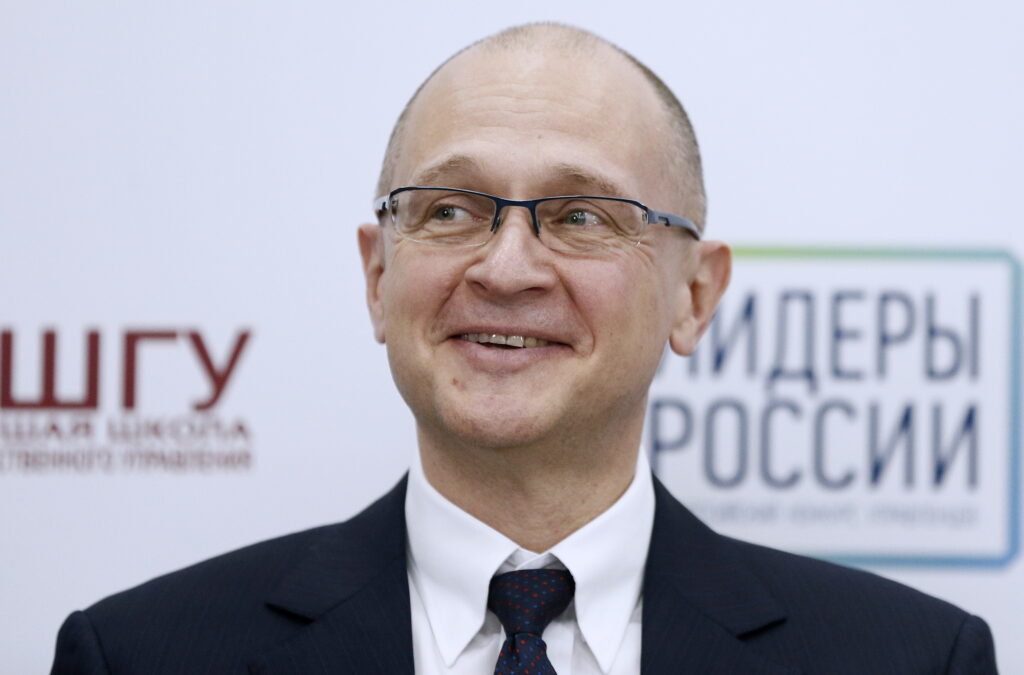Russia’s parliamentarians have unleashed a war against freedom of speech. Not only is their crusade unlikely to achieve its goals, it may bring even more protesters onto the streets. This determinedness of Russian authorities’ to quash any signs of discontent now trumps any other considerations. But it is short sighted; in the long term, such restrictions bring with social and economic consequences. Is Russia’s elite prepared to deal with them?
While some of its laws have already been adopted and others are still being discussed by the State Duma, the controversial new package of amendments has already prompted some dissent in Russian society. For example, when it comes to the draft law on a “sovereign internet” proposed by senator Andrey Klishas and Duma deputy Andrey Lugovoy, independent experts argue that the new proposals are not only economically but also technically impossible to implement. Meanwhile, rallies against the isolation of the “RuNet” from the rest of the internet have been held throughout the country. One such protest in Moscow attracted 15,000 people. Although the march was given prior approval by the authorities (as is legally required in Russia – ed.), police nevertheless detained 13 people. It has become obvious that implementing the new amendments will be costly; taxpayers will have to foot the bill for new measures which will weaken their own rights.
In his 1945 article entitled “How we can think” the American engineer Vannevar Bush outlined an early concept of what would become the Internet: the Memex proto-hypertext system (a portmanteau of “memory extender.”) Since then, the internet has become far more than a “memory expander;” it has come to externally structure human consciousness on a collective and individual level, even providing a virtual environment in which some of our existence takes place. In this context, any law which provides for state control over access to and behaviour on the Internet is perceived by most active users as “thought policing,” and an impermissible intrusion into their own consciousness.
These moves will particularly anger the most active and advanced internet users. These users are more than members of local online communities; their identities are far more global in scope. They are accustomed, so to speak, to online freedom of movement, and to commercial and cultural exchanges without the encumbrances of state borders and external restrictions. These people see the Russian state’s latest restrictions are an assault on their very identity, leading one to wonder whether law enforcement agencies which enact them are fully aware of the depth of the anger they will encounter in response. To varying degrees, everybody dislikes these new laws. If there is one thing which can bring these inhabitants of a virtual world back into the real one and onto the streets, it is an attempt to deprive them of that world. Some of those consequences can already be seen in the public response to last year’s ban of the Telegram messaging app.
However, the “sovereign internet” law has not yet been discussed in the State Duma, meaning that it could be heavily changed or not be adopted at all. This cannot be said of a series of amendments to a law on combating the dissemination of false information and “disrespectful remarks” about the authorities online. In addition to their obvious role in tightening censorship, these amendments may have another significance. Namely, they reveal the growing mutual resentment between the population and the state. Obviously, neither the authors of these laws nor their main beneficiaries fully appreciate that even the official consideration of such initiatives deepens mistrust between the authorities and the people on whose behalf they claim to rule. It is amusing to contrast this bleak reality with the recent declarations of Kremlin spin doctor Vladislav Surkov, who painted an over-imaginative picture in which Putinism is the natural ideology of the “deep[ly rooted] Russian people,” and the “modern model of the Russian state begins with trust and maintains trust.” Trust, Surkov continued, “marks the fundamental difference with the western model, which cultivates mistrust and criticism.” The amendments proposed by Klishas and his colleagues prove the exact opposite: in reality, the regime fears civil society and the people it rules. The regime knows that the people do not trust it, and expects that they will have nothing good to say of it in the decades to come.
Why is the government so determined to pursue even more policies suppressing of freedom of speech? One interpretation is that from on high, Russia’s elite has have started to realise that they are losing the global competition for symbolic superiority. Due to the country’s economic and technological lag, our rulers have nothing to boast about in the global game of comparisons. It seems that the authorities are also acutely aware of their “ideological” subordination to more developed countries: they have no compelling alternative political or economic model to offer. The Kremlin has been able to defer this looming crisis of confidence, but only for a few years; while the annexation of Crimea in 2014 bought some popular support, it did nothing to answer uncomfortable questions about Russia’s bad rate of corruption and inequality. But this crisis of confidence has started to catch up, and the long term negative consequences of the government’s foreign policy are beginning to be felt. In these conditions, domestic policy is becoming even more extreme and inflexible, hence the preparation for even more draconian censorship. To top it off, the authorities are holding extensive training exercises to ensure they are prepared to suppress dissent both online and on the streets.
The second interpretation does not contradict the first, but assumes that a different, more militarised, state of affairs in the near future. In recent years it has looked as though Russia is preparing for a large scale conflict. The Russian army has been rearming and modernising on a scale quite extensive for its modern history; the armed forces also envisage the use of both regular and irregular methods of warfare (the latter of which includes, for example, a growing role for mercenaries.) In this approach, the dissemination of information is itself seen as a new means of warfare, and measures to control it as acts of self-defence. This outlook was seen quite clearly in a recent statement by Chief of Staff Valery Gerasimov, who accused the US of deploying a “Trojan horse” strategy against Russia.
There are more and more grounds to assume to the worldview of Russia’s top brass today resembles that of Yevgeny Messner, whose theory of “subversive war,” while simplistic, has some parallels. This explains the Russian leadership’s heightened interest in controlling freedom of information and their obsessive mentions of phantom “fifth columns” working against the state. Unfortunately, the weak point of such strategies and theories is their complete lack of refutability, due to which such a mode of thinking can easily degenerate into conspiracy theories. The resulting paranoia among the country’s rulers could lead to a loss of control over the situation and their resorting to disproportionate and extreme measures, such as acts of terror against their fellow citizens.
The adoption of these new laws should be regarded as a vivid symptom of this paranoid strain of thinking. In one sense, the ideological subordination of Russia’s economic and political elites has given them, metaphorically and collectively speaking, an acute case of “impostor syndrome.” Meanwhile, the country’s military elite, from the secret services to the defence ministry, is completely in thrall to a paranoid logic. In this worldview, the regime’s lack of any credible programme which could earn the trust of its citizens is the fault of an imaginary “fifth column” and the machinations of the omnipresent US. At the same time, no attention is paid to the economic and social consequences of those laws which have been adopted, despite all the evidence that they have already caused widespread discontent, entail huge and pointless budget expenditures, higher communication costs for the population, an outflow of investments from high-tech industries, and a decline in scientific and cultural contacts with more developed countries.
It is not surprising that the bills have faced resistance from even Roskomnadzor (the Russian state regulator for information and mass media – ed.) All that remains is to hope that they meet the same fate as last year’s “Yarovaya Laws,” and amount to nothing. Or at least, to hope that they cause as little damage as possible. Otherwise, Russian society will remain locked in a vicious circle, where increasing pressure from above provokes mass discontent from below which the authorities cannot placate, so they resort to even more repression. The gap between society and the authorities will widen even more until it cannot be bridged with all the goodwill in the world. The most absurd thing of all is that by initiating these new laws, Russia’s rulers are pushing society towards what they have been fearing for years, and trying to avoid with all their might: yet another wave of mass protests.










